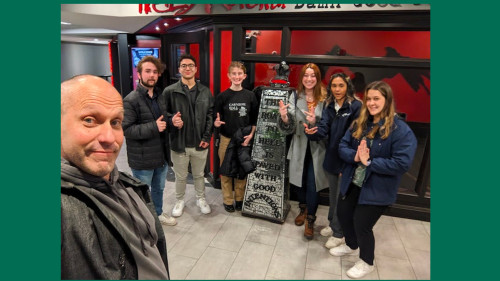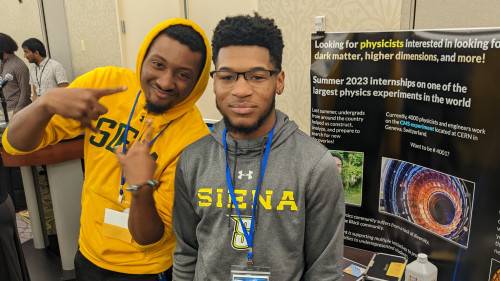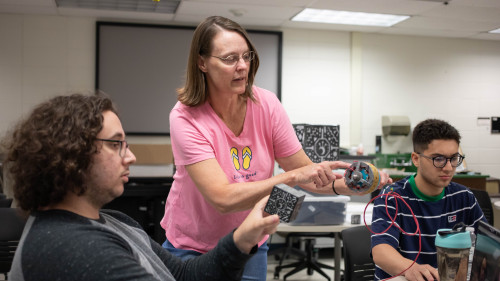
Noah Franz '23 spent the summer of 2021 searching for intelligent extraterrestrial life. His search came up empty, but his research will be featured this year in The Astronomical Journal.
In the 1997 science fiction movie Contact, Jodi Foster's character, Dr. Ellie Arroway, works for the SETI (search for extraterrestrial intelligence) program. She listens to radio emissions in space, hoping to find evidence of alien life. And she did. In the summer 2021, Franz worked for Berkeley SETI, at the University of California Berkeley, on an REU (Research Experiences for Undergraduates). Like Dr. Arroway, he searched the universe for technosignatures and signs of intelligent alien life. They haven't made a movie about his experience, but you will be able to read about it.
Noah will be first author in an article scheduled to appear in The Astronomical Journal later this year. The article describes the Breakthrough Listen Initiative which focuses the search for intelligent life in areas where intelligent life could plausibly be sending signals toward Earth. Those signals are known as technosignatures.
Specifically, Noah and his team looked at exoplanets (planets orbiting stars other than our own) that are transiting, or in between their own star and Earth, during their observation. Noah worked alongside a dozen undergraduates from colleges and universities across the country handpicked from more than 300 applicants. Astronomers have searched for signs of intelligent life since the early 1900s, shortly after the advent of radio, and focused international efforts have been ongoing since the 1980s. If the aliens are out there, humanity hasn't found them. So why would Noah spend his summer searching for a hypothetical needle in an intergalactic haystack?
"At times, I was sitting there drowning in data and trying to make sense of it, and I would think, 'Is it even worth it at this point?' The chances are so low. But then I would think, 'What if?' It would be awesome to answer the question, 'Are we alone in the universe?'"
Noah continues to work with Berkeley SETI and would like to explore other opportunities in radio astronomy. Ultimately, the double major in physics and applied data science would like to pursue his Ph.D. and a career as a professor.
"I like outreach. I like helping other people. I like teaching what I know and what I love. The classroom is a place where I can do that. I also love the research."
And maybe one day, that research will be turned into a Hollywood script.
To learn more about Noah's research (without waiting for the article in The Astronomical Journal), read his blog post from earlier this month.
"While searching for aliens can seem like an unconventional summer internship, I was able to apply a lot of the knowledge learned at Siena. Even though we did not find any evidence of aliens in the data, it was still an exceptional experience!"
Noah Franz '23
"Publishing a first-author paper in an internationally prestigious journal is a huge deal for a student like Noah, who's just in his third year of college. I'm confident this is just the first of many amazing contributions Noah will make to astrophysics."
John Moustakas, Ph.D., department chair and associate professor of physics

